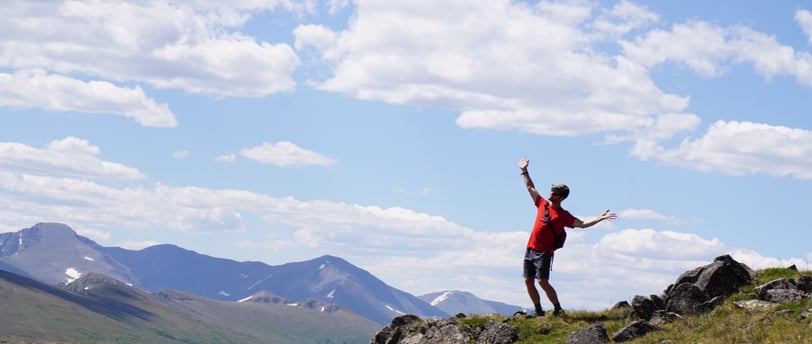Respecting our Parks
Help protect our parks, make sure you're doing your part while on the trail.
3/14/20252 min read


Hiking and backpacking in national parks offer an unparalleled opportunity to explore some of the most breathtaking landscapes on Earth. From towering mountain peaks to vast desert expanses, these protected lands provide a sanctuary for wildlife and a retreat for outdoor enthusiasts. However, with this privilege comes the responsibility to respect park rules and minimize human impact to ensure these natural wonders remain pristine for future generations.
One of the most fundamental aspects of hiking and backpacking in national parks is following Leave No Trace principles. These guidelines help preserve the environment by emphasizing responsible practices such as packing out all trash, staying on designated trails, and minimizing campfire impact. Straying from established paths can lead to soil erosion, destruction of plant life, and increased wildlife disturbance. Even seemingly minor actions, like picking wildflowers or carving initials into trees, can have long-lasting negative effects on the ecosystem.
Respecting wildlife is another crucial part of enjoying national parks. Many parks are home to bears, elk, wolves, and other animals that should be observed from a safe distance. Feeding wildlife is not only dangerous but also detrimental to their natural behaviors, leading them to become dependent on human food. Proper food storage techniques, such as using bear canisters or hanging food in designated areas, are essential for both human safety and animal well-being. Keeping a respectful distance and using binoculars or zoom lenses for photography ensures that animals remain undisturbed in their natural habitat.
Understanding and abiding by park regulations is key to a safe and enjoyable experience. Each national park has specific rules regarding camping, backcountry permits, and fire regulations. Many popular parks require advance reservations for campsites, and some backcountry areas limit the number of visitors to prevent overcrowding. Checking park websites and speaking with rangers before embarking on a trip helps hikers prepare adequately and ensures compliance with current guidelines.
Hiking responsibly also means being prepared for changing conditions. Weather in national parks can be unpredictable, with sudden storms, extreme temperatures, and challenging terrain posing risks to unprepared hikers. Carrying a map, sufficient water, appropriate clothing, and emergency supplies is essential for a safe journey. Additionally, informing someone of travel plans and estimated return times can be a lifesaving precaution in case of an emergency.
National parks belong to everyone, and by respecting their rules, visitors contribute to the preservation of these incredible landscapes. Thoughtful practices such as staying on trails, respecting wildlife, properly disposing of waste, and following park regulations ensure that future generations will have the same opportunity to experience the beauty of these protected lands. Responsible hiking and backpacking not only enhance personal enjoyment but also help safeguard the integrity of these cherished natural areas for years to come.
